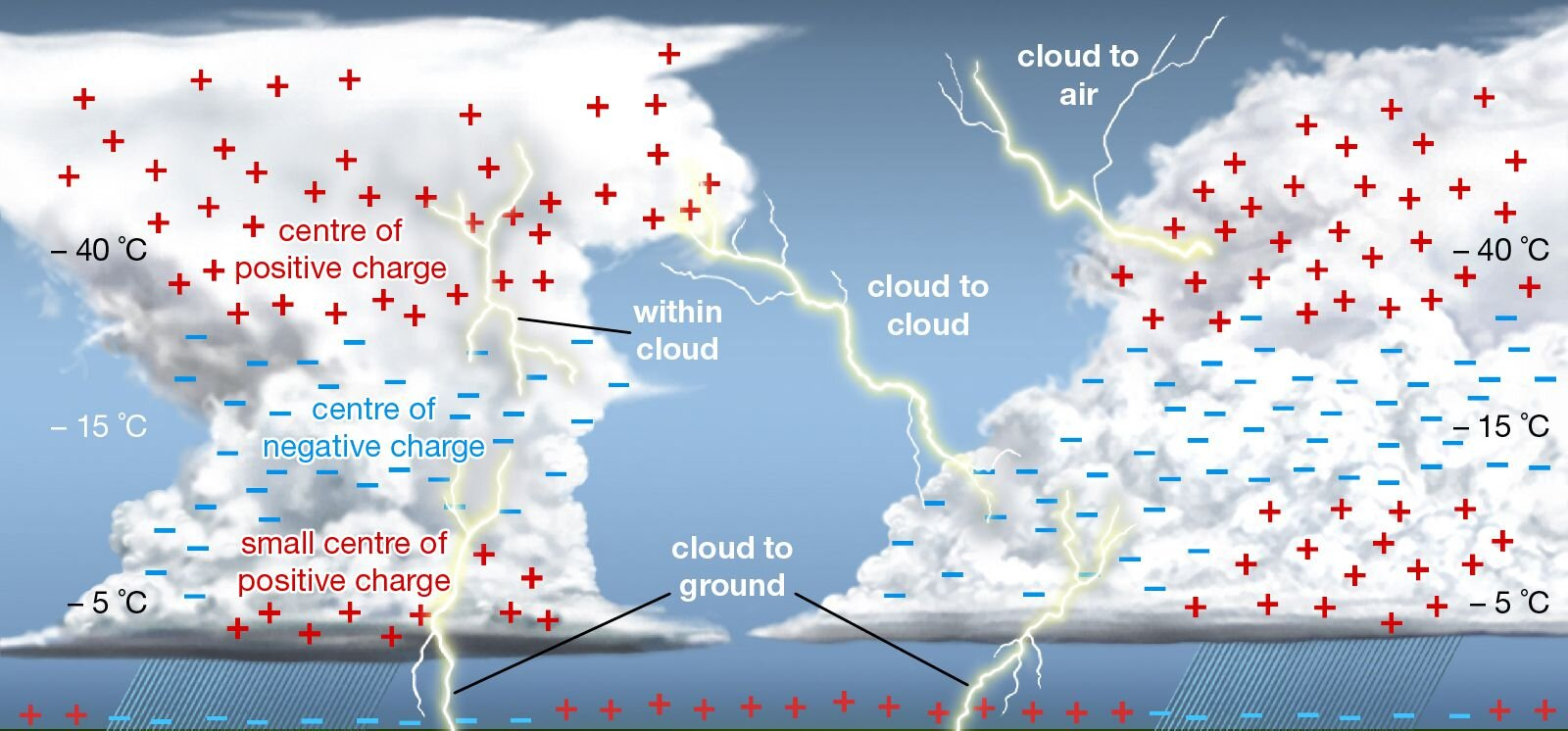Geography
States Demand to Declare Lightning as a Natural Disaster
- 13 Mar 2023
- 5 min read
For Prelims: Natural Disasters, Lightning.
For Mains: Effects of lightning and lightning as a natural disaster and Natural Disaster
Why in the News?
Recently few States have demanded that “lightning” be declared as a “natural disaster” because deaths caused by it surpass any other disaster in India.
- According to present norms, cyclone, drought, earthquake, fire, flood, tsunami, hailstorm, landslide, avalanche, cloudburst, pest attack, frost and cold waves are considered as disasters that are covered under the State Disaster Response Fund (SDRF), 75% of which is funded by the Centre.
What is Lightning?
- About:
- It is the natural process of "an electrical discharge of very little duration and high voltage between a cloud and the ground or within a cloud," accompanied by a bright flash, a loud sound, and occasionally thunderstorms.
- Cloud-to-ground (CG) lightning is dangerous because it can electrocute people due to its high electric voltage and current. Inter- or intra-cloud lightning is visible and safe.
- Process of Lightning:
- Lightning is caused by a difference in electrical charge between the top and bottom of a cloud, which generates a huge current of electricity.
- Water vapor in the cloud condenses and rises, generating heat and pushing water molecules further up until they become ice crystals. Collisions between the ice crystals trigger the release of electrons, leading to a chain reaction that results in a positively charged top layer and negatively charged middle layer in the cloud.
- When the difference in charge becomes large enough, a huge current of electricity flows between the layers, producing heat that causes the air column to expand and produce shock waves that create thunder sounds.
- Lightning and the Climate Change:
- In a 2015 study from California University, the university cautioned that a rise in one degree Celsius would result in a 12% increase in the frequency of lightning strikes.
- Another study that was released in Geophysical Research Letters in March 2021 found connections between climate change and an increase in lightning strikes in the Arctic.
- Lightning Strikes in India:
- According to a newly published yearly report on lightning from the Lightning Resilient India Campaign (LRIC), India may have seen up to 18.5 million lightning strikes between April 2020 and March 2021.
- Each year, lightning claims the lives of more than 2,500 Indians.
- According to a study by the Delhi-based RMSI, a global leader in geospatial and engineering solutions, Odisha, Madhya Pradesh, Chhattisgarh, West Bengal, and Jharkhand have witnessed the maximum lightning strikes in recent years.
- According to government statistics, more than 100,000 individuals have died in the nation as a result of lightning strikes between 1967 and 2019. This represents more than a third of the deaths brought on by natural disasters throughout this time.
Way Forward
- Early Warning Systems: To warn people of impending thunderstorms and lightning strikes, India should invest in early warning systems. Weather radar, lightning detection networks, and smartphone applications are a few examples of these systems.
- Lightning Safety Measures: It is important to inform India's rural communities about quick and easy lightning safety precautions. This can involve putting lightning rods on homes, staying indoors during thunderstorms, and taking cover in secure structures.
- Research and Development: To better understand lightning and discover creative ways to lower the risk, the Indian government should support research and development projects.
UPSC Civil Services Examination, Previous Year Questions (PYQ)
Q.1 During a thunderstorm, the thunder in the skies is produced by the (2013)
1. meeting of cumulonimbus clouds in the sky
2. lightning that separates the nimbus clouds
3. violent upward movement of air and water particles
Select the correct answer using the codes given below:
(a) 1 only
(b) 2 and 3
(c) 1 and 3
(d) None of the above produces the thunder
Ans: (d)
- Thunder is the sound produced by the rapid expansion of air, when it is heated by a lightning bolt.
- The air expands so quickly that it makes a loud sound called thunder.
- Therefore, option (d) is the correct answer.





